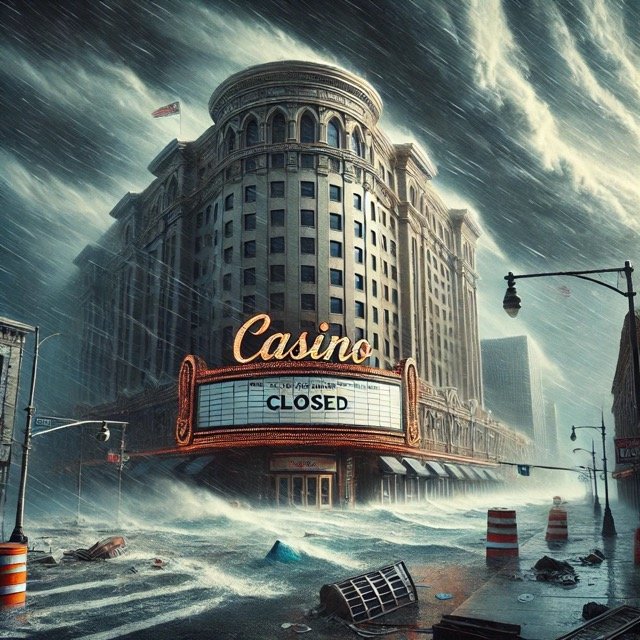
As Hurricane Francine battered the Gulf Coast with fierce winds and heavy rainfall, one industry felt the brunt of the storm more than most: gaming. Coushatta Casino Resort in Kinder, Louisiana, became one of the latest casualties of nature’s wrath, announcing its temporary closure to ensure the safety of guests and employees. The powerful hurricane, with maximum sustained winds of 100 mph, forced the casino to shut its doors on Wednesday, with the promise of reopening once conditions improved.
This isn’t the first time that casinos along the Gulf Coast have had to contend with extreme weather. The region, known for its hurricane season, is home to numerous gaming establishments that rely heavily on steady tourism. But when a storm hits, everything changes. Casinos must make difficult decisions about when to close, how to protect their assets, and how to communicate with their customers—all while balancing the financial impact of lost business.
Coushatta wasn’t the only casino affected. The Silver Slipper Casino Hotel in Bay St. Louis, Mississippi, also temporarily closed parts of its operations, including table games, restaurants, and even the golf club. For casinos, these closures can result in significant revenue losses, especially during busy seasons when tourists flock to coastal areas. However, the priority remains the safety of everyone involved—both staff and guests.
The challenge of operating in hurricane-prone areas also brings up larger questions about risk management in the gaming industry. Casinos invest millions in security systems, infrastructure, and backup power to ensure they can reopen quickly after a storm passes. However, these storms also expose the vulnerability of an industry built on physical locations. As hurricanes become more frequent and severe due to climate change, casinos in these regions may have to rethink their long-term strategies.
Beyond the immediate closures, local curfews and flight cancellations add another layer of complexity to casino operations. For example, with cities like Gulfport, Mississippi, imposing strict curfews, movement is restricted, and customers are unable to travel freely to gaming destinations. Even after the storm passes, flooding and other damage may delay the return to normal operations.
The financial impact of hurricane-related closures extends beyond the casinos themselves, affecting the broader tourism economy. Hotels, restaurants, and other businesses tied to the gaming industry also face significant losses, making recovery efforts all the more challenging. However, the resilience of the Gulf Coast casinos is well-known, and they will likely bounce back once the storm passes—ready to welcome back guests seeking entertainment and escape.








